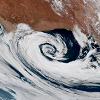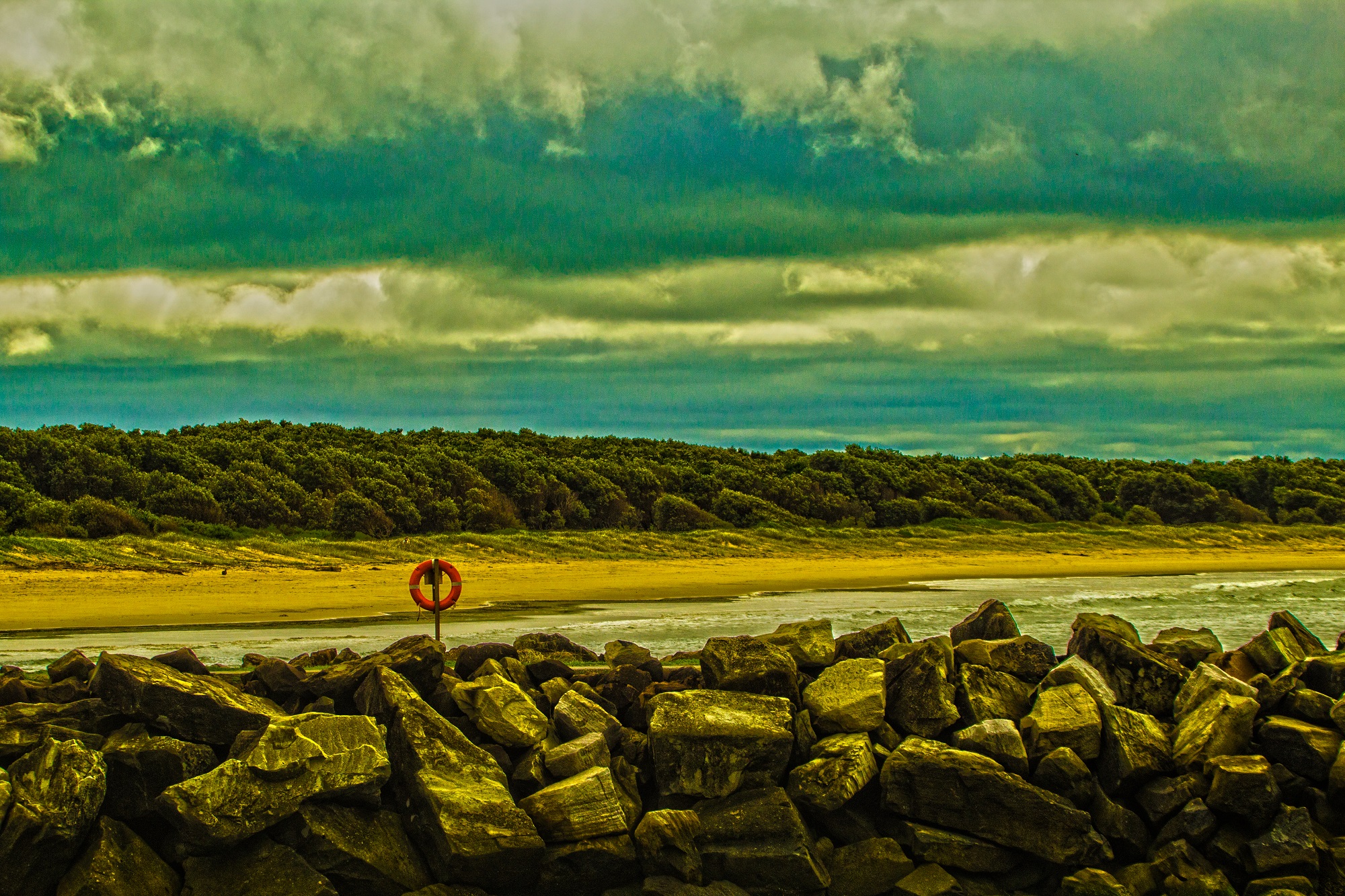AustLit
-
This brief glossary covers some of the terms in current use in climate change fiction and in discussions of both the fiction and the phenomenon. In some cases, these terms are explored more broadly in Dr Deborah Jordan's monograph, to which a link is provided. In other cases, outside sources are provided.
Anthropocene: As coined by atmospheric chemist Paul Crutzen and limnologist Eugene Stoermer in 2000, the Anthropocene denotes the geological period in which humans have a decisive influence in altering the state, processes and future of the earth, usually suggested to have begun around 1800 with the European Industrial Revolution.
Anthropocentrism: The divide between nature and culture is one of the basic binaries in Western thinking. As an ideology that determines how human cultures make sense of the world, anthropocentrism is defined as 'a human-centred ethical system' in which 'human beings are the sole bearers of intrinsic value or possess greater intrinsic value than non-human nature' (Mclean et al). See Climate Change Narratives for more detail.
Capitalocene: as argued by Jason W. Moore (Binghampton University), 'Capitalocene' removes Anthropocentrism from its central role in discussions of climate change, repositioning capitalism in its place: 'Anthropogenic implicates an actor that doesn’t exist. There is no Anthropos, no humanity as a unified actor. So, if not anthropogenic, what? In a word: capitalogenic' ('World Accumulation'). The Capitalocene is a way ' to begin to ask how the accumulation of capital, the pursuit of power and the co-production of nature form an organic and evolving whole' ('World Accumulation'). (See 'World Accumulation and Planetary Life' and 'The Capitalocene, Part I', both by Jason W. Moore.)
Ecocriticism: Ecocriticism, or the field of literary ecological criticism, emerged as an academic field of enquiry in the 1990s initially as a strand in literary criticism that distinguished works in which human agency is not the sole significant interest, or which offer perspectives on the inter-relation of human and non-human. See Climate Change Narratives for more detail.
Ecofeminism: An intersectional ecological-feminist approach, according to Gaard who offers an overview and history, ecofeminism frames these issues in such a way that people can recognise 'common cause across the boundaries of race, class, gender, sexuality, species, age, ability, nation'--and 'affords a basis for engaged theory, education, and activism'.
Environmentalism: Environmentalism is a very broad concept referring to a way of thinking about the natural world; sometimes it is defined as a set of deeply-rooted values and a mode of action. It articulates a relationship to the land and its creatures, and to some extent, guides the way we act towards it. See Climate Change Narratives for more detail.
Environmental uncanny / Ecological uncanny: Primarily associated with Amitav Ghosh's The Great Derangement, the 'environmental uncanny' positions the Freudian notion of the uncanny in relation to human and non-human interactions in the Anthropocene. In Ghosh's terms, ' we are now in an era that will be defined precisely by events that appear, by our current standards of normality, highly improbable: flash floods, hundred-year storms, persistent droughts, spells of unprecedented heat, sudden landslides, raging torrents pouring down from breached glacial lakes, and, yes, freakish tornadoes' (p.32). (See: 'Uncanny Objects in the Anthropocene'.)
Food security: defined by governments and health organisations as the measure of the availability of food and the access of individuals to it, including affordability. Food security becomes a subject of great focus and anxiety in discussions of climate change. (See: 'Food Security and Why It Matters'.)
The Great Acceleration: the sharp mid-twentieth century uptick in the rate of ecological change across the planet named in homage to Karl Polanyi's analysis in 1944 which found the markets, as chief means of distributing goods and services among populations was neither 'natural' nor innate.
The Great Derangement: See Environmental uncanny.
Pastoral: a literary mode that has roots in Ancient Greek writing, pastoral literature traditionally represents an idealised view of pastoral and country life, often intended for an urban audience. (So 'Clancy of the Overflow', with its daydreaming officeworker contrasted against the freewheeling drover, falls within the pastoral tradition.) In its focus on man's place within nature and its idealisation of natural spaces, pastoral literature is something of both a forerunner and counterpoint to climate change fiction.
Meteoranxiety: see Solastalgia.
Solarpunk: sometimes positioned as the opposite of climate-change fiction (where the latter is conceived of as inherently dystopian), solarpunk as a literary sub-genre imagines a response to the Anthropocene that includes radical social change and an embracing of sustainable, renewable, or organic technologies and processes. (See: the Conversation's 'explainer', 'Solarpunk, or How to Be an Optimistic Radical'.)
Solastalgia: as defined by environmental philosopher Glenn Albrecht, solastalgia is 'an emplaced or existential melancholia experienced with the negative transformation (desolation) of a loved home environment' (Albrecht). Originally described in 2007 by Albrecht et al. around the impact of open-cut mining on the Hunter Valley landscape, it has subsequently been picked up more broadly as a factor in responses to climate change. Albrecht also coined the term meteoranxiety, which refers to anxiety triggered by abnormal or catastrophic weather conditions and a foreboding of future weather difficulties. (See Albrecht's 2012 revisiting of the subject of solastalgia in The Conversation.)
Water wars: also called water conflict, water wars are the struggle over access to water resources. Historically, they have included struggles over access to both freshwater and saltwater (for example, ports and ocean access). In 2018, the European Commission's Joint Research Centre released a study suggesting that 'hydro-political issues' were likely to be a key factor arising from climate change, especially in areas that already have problems accessing fresh water and / or where a 'transboundary' to water exists. (See: 'Where Will the Water Wars of the Future Be Fought?'.)
You might be interested in...





